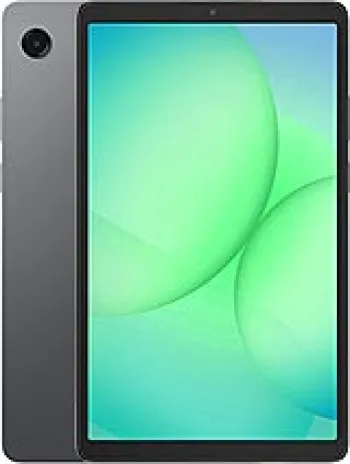
Overview of Samsung T539 Beat
The Samsung T539 Beat, announced in October 2007, is a feature phone that was popular for its compact design and user-friendly interface. Even though it is now discontinued, it holds a special place in the history of Samsung's mobile phone lineup. The device was specifically targeted at users who preferred a simple phone with basic multimedia capabilities and robust GSM connectivity.
Design and Build
The Samsung T539 Beat features a classic clamshell design with dimensions of 90 x 46 x 18 mm and a lightweight build of only 77 grams. This design was quite common in the mid-2000s, emphasizing portability and ease of use. The phone fits comfortably in the palm of your hand, making it easy to handle for both calls and texting. The black color of the device adds a touch of elegance and simplicity to its appearance.
Display
The device sports a 2.0-inch TFT color display with a resolution of 120 x 160 pixels. Although the screen's pixel density is around 100 ppi, which might seem low by today's standards, it was quite adequate for basic phone usage, including reading messages and browsing through menus. The display supports 65K colors, providing a decent viewing experience for its time.
Network and Connectivity
Equipped with GSM technology, the Samsung T539 Beat supports 2G bands of GSM 850, 900, 1800, and 1900 MHz, ensuring good coverage across various regions. It features GPRS and EDGE class 10 for mobile data, although it lacks the advanced connectivity options found in later models, such as 3G or 4G support. The inclusion of Bluetooth 2.0 with A2DP was a notable feature, allowing for wireless audio streaming and connectivity with other Bluetooth-enabled devices.
Camera
The phone is equipped with a 1.3-megapixel main camera. While this may not impress by contemporary standards, it was suitable for simple photography needs during the phone's release period. Users could take photos and record videos, capturing memories with ease. However, there is no front-facing camera, which limits its capability for self-portraits or video calls.
Memory and Storage
The Samsung T539 Beat comes with an internal storage of 30MB, which could be expanded using a microSD card in a dedicated slot. This storage capacity was sufficient for storing contacts, messages, and a few multimedia files like ringtones and low-resolution images. The phonebook supports up to 1000 entries, which is quite generous, allowing users to keep extensive contact lists.
Battery Life
The device houses a removable 800 mAh Li-Ion battery, providing up to 360 hours of standby time and up to 6 hours of talk time. This battery performance highlights the efficiency of feature phones during that era, as they consumed significantly less power compared to modern smartphones.
Software and Features
Operating as a feature phone, the Samsung T539 Beat supports basic functionalities crucial for communication. Users can send and receive SMS, MMS, and emails. The web browser accommodates WAP 2.0/xHTML and HTML (NetFront 3.2), offering a modest browsing experience suitable for checking emails and light internet access.
Furthermore, the phone supports Java MIDP 2.0, enabling the use of Java-based applications and games, although no games come pre-installed. Despite its simple interface, the phone complied with the era's standards for versatile communication without the complexities of smartphone operating systems.
Audio and Multimedia
Sound-wise, the Samsung T539 Beat includes a loudspeaker for calls and media playback. It supports downloadable polyphonic and MP3 ringtones, allowing users to customize their experience. Notably, there is no 3.5mm audio jack, but users could utilize Bluetooth for audio accessories.
Market Position and Pricing
Priced at approximately 60 EUR at launch, the Samsung T539 Beat was an affordable option for users seeking an uncomplicated mobile experience. Given its capabilities and price point, it appealed to a market segment desiring functional and reliable communication tools without the need for advanced smartphone features.
Key Features of Samsung T539 Beat
- GSM technology for wide network compatibility
- Compact dimensions: 90 x 46 x 18 mm and lightweight at 77 g
- 2.0-inch TFT display with 65K colors
- Expandable memory through a dedicated microSD slot
- 1.3 MP main camera with video capability
- Bluetooth 2.0 with A2DP for wireless audio
- Supports SMS, MMS, and Email messaging
- Removable Li-Ion 800 mAh battery with up to 360 h standby and 6 h talk time
- Affordable price point at approximately 60 EUR
Disadvantages of Samsung T539 Beat
- Discontinued product, no longer supported with updates or repairs.
- Limited display quality with low resolution (120 x 160 pixels) and a small screen size (2.0 inches).
- Very low internal storage capacity of only 30MB.
- Lacks a front-facing (selfie) camera.
- No 3.5mm headphone jack available for wired audio connection.
- Lacks modern connectivity options: no WLAN, GPS, or radio.
- Limited Bluetooth version 2.0 which may not support recent Bluetooth devices and functionalities.
- No included games which could limit entertainment options.

View Also
More Phones
All Rights Reserved +14266 Phones © Mobilawy 2025

























